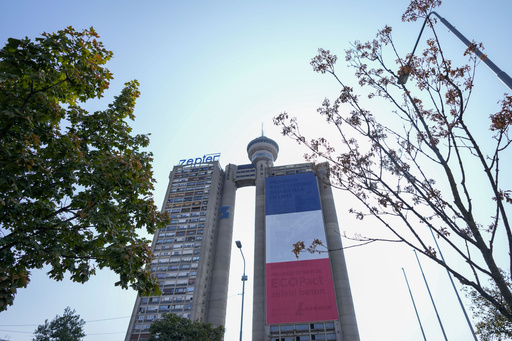French President Emmanuel Macron is embarking on a two-day state visit to Serbia, with a key focus on the potential sale of 12 Rafale multi-purpose fighter jets to the country. The deal, reportedly worth 3 billion euros ($3.3 billion), is likely to be announced during Macron’s meeting with populist President Aleksandar Vucic in Belgrade. An official from Macron’s office mentioned that discussions on the warplanes align with a broader strategy to bring Serbia closer to the European Union (EU).
Serbia, which has historically maintained strong ties with Russia despite its actions in Ukraine, is in need of upgrading its air fleet. The Rafale jets are being seen as a crucial choice for Belgrade, which currently relies heavily on Russian equipment. Although Serbia has expressed interest in joining the EU, progress has been slow under Vucic’s leadership due to issues related to the rule of law and democratic reforms.
In a letter published in local media, Macron encouraged Serbia to pursue its EU aspirations but acknowledged the challenges and frustrations faced by the nation regarding the accession process. Macron underlined the importance of a strong and democratic Serbia within the EU framework and warned against maintaining a balancing act between global powers, particularly in light of the conflict between Russia and Ukraine.
The potential acquisition of Rafale jets would enable Serbia to modernize its air force, which currently includes Soviet-era MiG-29 fighters and outdated Yugoslav aircraft. This move comes as neighboring Croatia recently purchased similar jets. Amid concerns over Serbia’s military buildup and its historical ties with Russia, questions have been raised about safeguards to prevent the transfer of Rafale technology to Moscow.
Macron’s agenda in Serbia includes discussions on Balkan tensions, specifically regarding Kosovo, which declared independence in 2008. Additionally, the visit will involve cultural engagements, an economic forum on artificial intelligence in Novi Sad, and potential collaborations in nuclear technology with French energy provider EDF. The visit underscores efforts to strengthen ties between Serbia and the EU while addressing regional security concerns in the Western Balkans.


